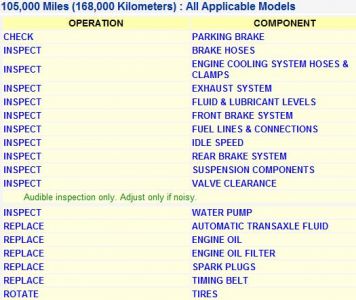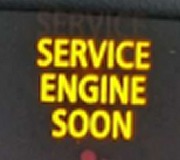This is a really old question, but some confusion should be cleared up. A plugged catalytic converter will not cause rough running or vibrations. The engine will run uncommonly smoothly, but with no power. It may backfire through the throttle body. You will hear a steady hiss from the tail pipe, not the normal "putt putt". Also a fault code related to catalytic converter efficiency refers to no change is taking place in the composition of the exhaust gas as it goes through it. That has nothing to do with being plugged. The readings from the front oxygen sensor switch between "rich" and "lean" about two times per second. If the converter is working, the readings from the rear oxygen sensor will switch perhaps once per minute or two. When the gas going out is the same as what went in, the rear sensor will start to switch at a faster and faster rate until eventually it matches that of the front sensor. That rear sensor switching rate is what the Engine Computer looks at to determine when the converter isn't cleaning up the exhaust gas. It can take days or weeks before that fault code sets again, unless the converter has failed completely.
Throughout this entire story, I never saw any indication the spark plugs were actually replaced. At the mileage listed, it would be a miracle if the original spark plugs were NOT causing a problem. This is like staring at a flat tire, and asking over and over why the vehicle steers funny. Every part of this description points to a misfire, and while there are other possible causes, it's silly to overlook the most obvious one.
Adding injector cleaner to the gas tank, or any other "mechanic-in-a-can" is not going to solve this. If that was the solution, we'd sell a can of that stuff every time someone had a failed spark plug. Even the cheapest gas you can find today has so many detergents and other additives. The stuff in the cans is just a highly-concentrated form of the same stuff. Think of washing your hands non-stop for weeks with soap and water, then you suddenly think they're going to become cleaner by using a wire brush with that soap.
The EGR system is being blamed unfairly for this. It's true a plugged passage will cause reduced flow, but that means there's less inert gas going into the cylinders and the engine will run better, with more power. The purpose of the EGR system is to dump a little spent exhaust gas into the cylinders to take up space so there's less room for fresh air and gas. That is never done at low speeds or idle, and not when higher power is needed as in when accelerating or under load. It only occurs when cruising with a low power demand. The only way the EGR system will cause rough running is if the valve sticks open at low speeds. That would result in too much flow. This fault code is for too little flow.
JYSPIRIT, you need to start a new question specific to your vehicle, and PLEASE be sure to list the engine size, mileage, and transmission type. Unlike other sites where anyone can chime in, here this becomes a private conversation between you and one or two experts who will stick with you to the end. This question is on our list of questions that have already received replies, and as such, none of the other experts will read it or see your addition. That won't get you the help you need and may be why you've been waiting so long for a reply. I only saw it because I was catching up on conversations where I thought I could learn something.
We need to know the engine size when looking up parts or wiring diagrams, and we look at the mileage when making judgments as to the most likely suspects, as in this question. That's why we appreciate it when that information is listed right up front. It's also helpful when you list as many details, observations, and clues in your original post as possible. Most of us are only here a few hours per day, and when the details have to be dragged out over numerous replies, it can take days or weeks to find the final solution. Things like whether the engine has to be warmed up, at what speeds this occurs, whether it changes during accelerating, coasting, or turning, etc, can be helpful clues.
Wednesday, January 10th, 2018 AT 4:44 PM





